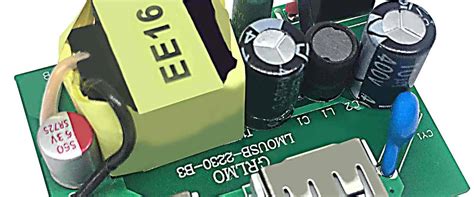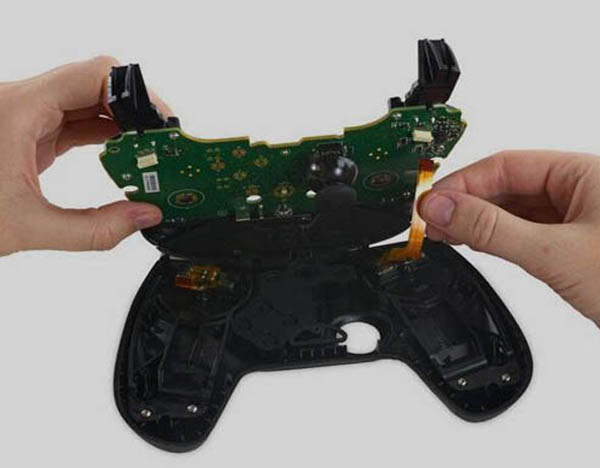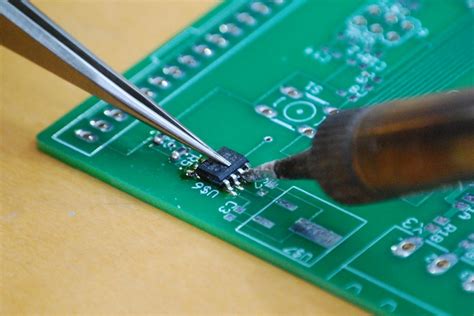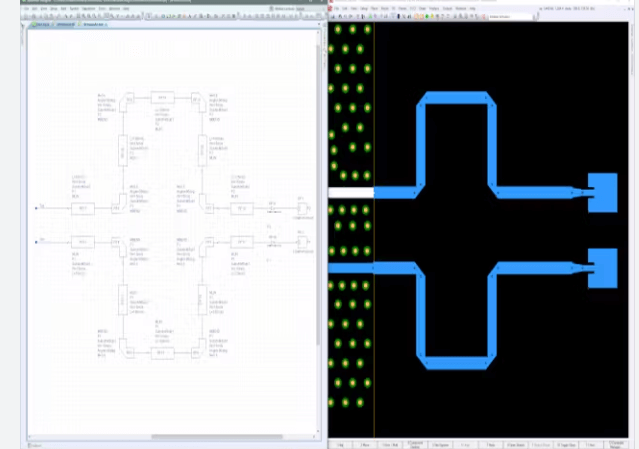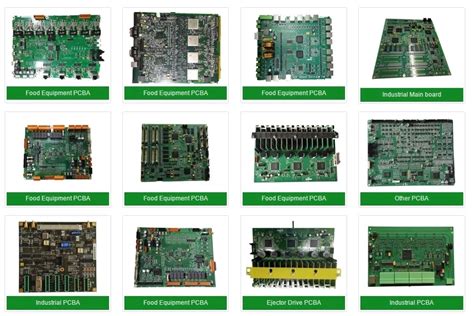Top Mobile Charger PCB Manufacturers for Reliable Power Solutions
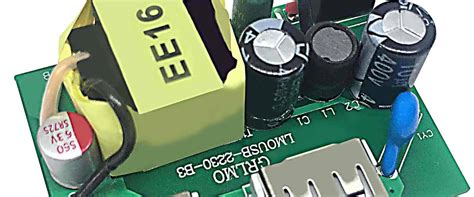
Key Takeaways
When evaluating PCB manufacturing partners for mobile charger projects, prioritize companies with proven expertise in UL-certified designs and high-density layouts. Leading PCB manufacturing companies combine advanced thermal management techniques with rigorous quality controls, ensuring your power delivery systems meet global safety standards while minimizing PCB manufacturing cost through optimized material selection.
"Always verify a supplier’s IEC 62368-1 compliance documentation before finalizing contracts – this safeguards against costly redesigns later in production cycles."
Look for manufacturers offering 24-hour prototyping turnarounds, particularly those utilizing laser-drilled microvias for compact charger designs. This agility becomes critical when scaling from pilot batches to bulk orders in the PCB manufacturing business, where maintaining ±2% impedance tolerance across 10,000+ units separates premium suppliers from basic fabricators.
Cost optimization strategies should balance:
- Advanced stackup configurations (6-8 layer boards with hybrid FR4 materials)
- Automated optical inspection (AOI) coverage exceeding 98%
- Dynamic pricing models for quarterly order commitments
Reputable partners like Andwin PCBA typically provide:
- On-time delivery guarantees backed by real-time production tracking
- Conformal coating options for moisture-resistant charging circuits
- Value-added services including firmware integration support
When comparing PCB manufacturing quotes, insist on breakdowns covering:
- LPI solder mask vs. traditional epoxy costs
- ENIG surface finish premium for enhanced durability
- Panel utilization rates affecting per-unit pricing
Transition smoothly between prototype and mass production by confirming the manufacturer’s change order flexibility – crucial when adapting to evolving USB-PD or GaN charging standards without disrupting your market launch timelines.

Mobile Charger PCB Manufacturers Delivering Reliable Power Solutions
When selecting a partner for PCB manufacturing in the mobile charger industry, reliability begins with understanding how PCB manufacturing companies balance technical precision with scalable production. Modern mobile devices demand power solutions that prioritize safety, efficiency, and durability—qualities embedded in every layer of a well-designed printed circuit board. Leading manufacturers leverage advanced technologies like automated optical inspection (AOI) and thermal management systems to ensure boards meet stringent performance standards, particularly for high-current applications.
A critical factor in PCB manufacturing cost optimization is material selection. Top-tier suppliers use FR-4 or polyimide substrates paired with copper traces rated for 2–6 oz thickness, depending on power requirements. For example, fast-charging circuits often require thicker copper layers to minimize resistance and heat generation. Here’s a comparison of common material configurations:
| Material Type | Copper Weight (oz) | Thermal Conductivity | Ideal Application |
|---|---|---|---|
| FR-4 | 2–3 | Moderate | Standard Chargers |
| Polyimide | 4–6 | High | Fast Chargers |
| Ceramic-Filled | 3–4 | Very High | Wireless Chargers |
Beyond materials, PCB manufacturing business success hinges on compliance with international safety certifications like UL and IEC. Reputable manufacturers integrate failure mode and effects analysis (FMEA) during prototyping to preemptively address design flaws. This proactive approach reduces costly revisions post-production and ensures boards deliver consistent performance across temperature fluctuations and voltage spikes.
You’ll also want to evaluate a supplier’s scalability. Reliable partners offer flexible order volumes—from low-volume prototyping to high-volume runs—without compromising turnaround times. For instance, some companies utilize modular production lines that can pivot between 10-layer rigid PCBs for compact chargers and hybrid designs for multi-device hubs. By aligning your needs with a manufacturer’s technical capabilities, you secure a supply chain that adapts to evolving market demands while maintaining competitive pricing strategies.
Finally, transparency in testing protocols—such as in-circuit testing (ICT) and boundary scan checks—ensures every board meets your specifications before shipment. This rigor minimizes field failures and reinforces your brand’s reputation for reliability.
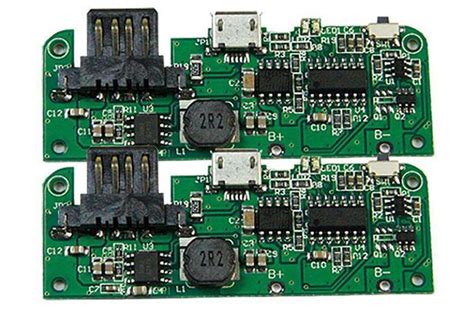
UL-Certified Mobile Charger PCB Design Experts for Safe Charging
When evaluating PCB manufacturing companies for mobile charger applications, prioritizing UL-certified designs ensures compliance with rigorous safety standards. These certifications validate that the PCB manufacturing process incorporates fire-resistant materials, proper insulation spacing, and overload protection mechanisms—critical factors for preventing short circuits or overheating in compact charging devices.
Experienced manufacturers optimize PCB manufacturing cost without compromising safety by leveraging automated testing protocols and advanced simulation tools. For instance, thermal management systems are digitally modeled to identify potential hotspots before physical prototyping, reducing material waste and accelerating time-to-market. This approach aligns with the evolving demands of the PCB manufacturing business, where both scalability and precision are non-negotiable for high-volume orders.
UL certification also impacts component sourcing strategies. Reputable suppliers partner with certified material vendors to ensure every layer—from FR-4 substrates to copper traces—meets flammability ratings and electrical performance benchmarks. You’ll find that leading providers integrate impedance control and EMI shielding techniques directly into their design workflows, addressing interference risks common in fast-charging architectures.
For businesses concerned with PCB manufacturing cost, it’s worth noting that certified designs often translate to long-term savings. Products built to UL standards face fewer compliance-related delays and recalls, protecting brand reputation while minimizing warranty claims. Additionally, manufacturers offering design-for-manufacturability (DFM) reviews can further streamline production efficiency, identifying cost drivers like unnecessary via counts or oversized board geometries early in the process.
By collaborating with UL-certified PCB manufacturing companies, you gain access to expertise in balancing regulatory requirements with performance targets—a crucial advantage when developing chargers for global markets. Their ability to document every stage of the PCB manufacturing lifecycle, from material traceability to final inspection reports, simplifies certification audits and strengthens supply chain transparency.
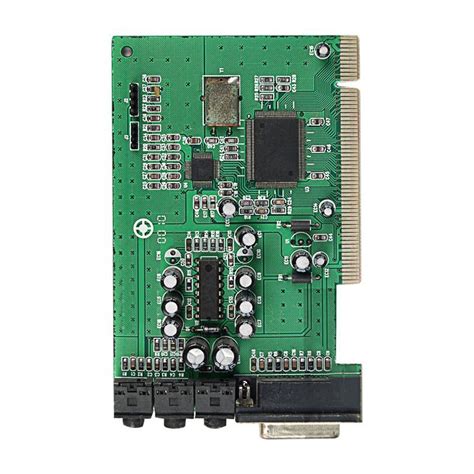
Rapid Prototyping Services for Next-Gen Mobile Charger PCB Designs
When developing cutting-edge mobile charger solutions, partnering with PCB manufacturing companies that offer agile prototyping capabilities ensures your product stays ahead of market demands. Rapid prototyping bridges the gap between concept and mass production, allowing you to test designs, optimize performance, and validate safety standards like UL certification before committing to bulk orders. Modern PCB manufacturing workflows leverage advanced techniques such as laser direct imaging (LDI) and automated optical inspection (AOI) to accelerate turnaround times while maintaining precision.
A key advantage of working with specialized prototyping services is the ability to iterate designs quickly. For instance, if thermal management issues arise in high-power charging modules, engineers can refine trace layouts or material choices within days—a critical factor when balancing PCB manufacturing cost and performance. Many providers now integrate simulation tools to predict electrical behavior and EMI risks, reducing physical testing cycles by up to 40%. This approach not only slashes development timelines but also minimizes costly redesigns during bulk production.
When evaluating PCB manufacturing business partners for prototyping, prioritize those offering flexible scalability. A robust provider will support low-volume batches (as few as 10 units) for functional testing while ensuring seamless transitions to high-volume manufacturing. Look for facilities with ISO 13485 or IATF 16949 certifications, which signal adherence to rigorous quality controls—essential for applications like fast-charging adapters where reliability is non-negotiable.
Cost transparency is another critical consideration. While prototyping inherently involves higher per-unit expenses than mass production, forward-thinking manufacturers provide detailed breakdowns of PCB manufacturing cost drivers, such as layer count, substrate materials, and surface finishes. By analyzing these early, you can make informed trade-offs—for example, opting for ENIG (Electroless Nickel Immersion Gold) plating for durability without overengineering less critical components.
This phase also lets you stress-test manufacturability. Advanced PCB manufacturing companies use prototyping to identify potential assembly challenges, such as component placement conflicts or soldering complexities, ensuring your final design aligns with automated production lines. By addressing these issues upfront, you avoid delays during scaling—a strategic advantage in industries where time-to-market defines competitive success.
Ultimately, rapid prototyping isn’t just about speed—it’s about building a foundation for future-ready power solutions. By integrating feedback loops between design, testing, and PCB manufacturing teams, you create products that balance innovation, safety, and cost-efficiency from the first prototype to the millionth unit.
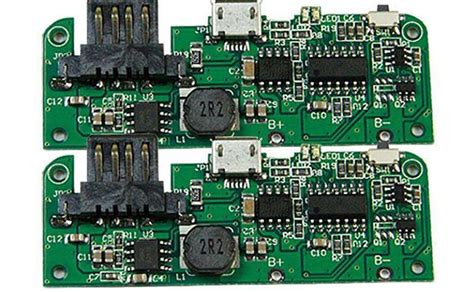
Bulk Production Solutions from Trusted Charger PCB Manufacturers
When evaluating PCB manufacturing companies for large-scale projects, you need partners who balance pcb manufacturing cost efficiency with uncompromising quality. Established manufacturers specializing in bulk production leverage economies of scale to optimize material procurement, automated assembly workflows, and rigorous testing protocols. This ensures consistent output, whether you’re sourcing 10,000 units or scaling to meet seven-figure orders.
Leading pcb manufacturing providers integrate advanced panelization techniques to minimize material waste, directly lowering per-unit expenses. For example, using multi-circuit panel designs allows manufacturers to produce dozens of charger PCBs in a single fabrication cycle, reducing both production time and pcb manufacturing business overhead. Additionally, partnerships with certified raw material suppliers enable bulk buyers to lock in competitive pricing for high-grade substrates and copper layers.
Quality assurance remains non-negotiable in bulk orders. Reputable manufacturers deploy automated optical inspection (AOI) systems and in-circuit testing (ICT) to detect micro-defects across entire batches. This is critical for charger PCBs, where even minor flaws in power regulation circuits or solder joints can compromise safety and performance. Many providers also offer traceability systems, allowing you to monitor production milestones and compliance with regional safety standards like UL or CE.
For businesses managing tight timelines, top-tier pcb manufacturing companies streamline logistics through pre-negotiated shipping contracts and regional warehousing. Some even provide just-in-time (JIT) inventory management, synchronizing deliveries with your assembly line schedules to avoid storage bottlenecks. By aligning their pcb manufacturing cost structures with your volume needs, these partners become strategic allies in maintaining profit margins without sacrificing reliability.
Ultimately, selecting a manufacturer for bulk charger PCB production requires evaluating their scalability, quality infrastructure, and transparency in pricing models. Prioritize partners with proven expertise in high-volume consumer electronics and a track record of adapting to evolving energy efficiency standards. This ensures your power solutions remain competitive in fast-paced markets.
Competitive Pricing Strategies for High-Quality Mobile Charger PCBs
When sourcing mobile charger PCBs, balancing affordability with performance is critical. Leading PCB manufacturing companies achieve competitive pricing through economies of scale, advanced automation, and strategic material sourcing. By partnering with manufacturers that optimize PCB manufacturing cost without compromising quality, you gain access to durable, UL-certified designs that meet stringent safety standards.
A key driver of cost efficiency lies in design optimization. Manufacturers that employ simulation tools to minimize material waste and streamline layer stacking can reduce PCB manufacturing business expenses by up to 20%. For instance, using high-frequency laminates selectively in critical areas—rather than across the entire board—lowers raw material costs while maintaining signal integrity. Additionally, automated assembly lines enable faster production cycles, translating to lower labor costs per unit.
Another strategy involves volume-based pricing models. Most PCB manufacturing specialists offer tiered pricing for bulk orders, with discounts scaling as quantities increase. However, it’s essential to verify whether these cost savings align with your quality expectations. Reputable providers often share detailed breakdowns of PCB manufacturing cost components, including substrate grades, copper weights, and surface finishes, ensuring transparency.
To further reduce expenses, consider collaborating with manufacturers that provide design-for-manufacturability (DFM) feedback early in the prototyping phase. Addressing potential flaws—like improper trace spacing or thermal management issues—before mass production prevents costly revisions. Some companies even bundle DFM analysis with their PCB manufacturing business packages, eliminating hidden fees.
It’s also worth exploring global supply chain partnerships. While regional manufacturers may offer faster turnaround times, offshore PCB manufacturing companies often provide lower base rates due to reduced operational overhead. Just ensure they comply with international quality certifications to avoid reliability risks.
Ultimately, competitive pricing isn’t about choosing the cheapest option—it’s about identifying value-driven solutions. Prioritize manufacturers that balance PCB manufacturing cost with rigorous testing protocols, such as automated optical inspection (AOI) and thermal stress testing, to ensure your mobile charger PCBs deliver consistent performance across their lifecycle.
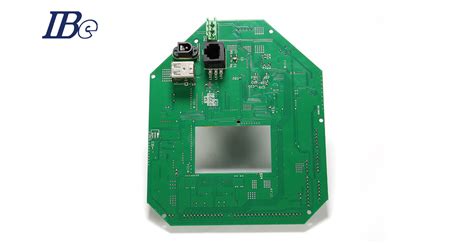
On-Time Delivery Guarantees in Mobile Charger PCB Manufacturing
When selecting PCB manufacturing companies for mobile charger production, meeting deadlines isn’t just a perk—it’s a critical factor in maintaining your product launch timelines and customer trust. Delays in PCB manufacturing can ripple through your supply chain, leading to missed market opportunities or inflated PCB manufacturing cost due to rushed logistics. Reputable manufacturers address this by integrating advanced production planning tools, maintaining buffer inventory for raw materials, and adopting lean workflows to eliminate bottlenecks.
For instance, leading providers leverage automated assembly lines and real-time tracking systems to ensure seamless transitions from prototyping to bulk orders. This precision becomes especially vital when scaling PCB manufacturing business operations, where even minor delays in component sourcing or quality checks can derail schedules. To mitigate risks, many firms now offer binding delivery contracts backed by penalty clauses, ensuring accountability. You’ll also find tiered production models—where high-priority orders are fast-tracked without compromising quality—to accommodate urgent requests.
Another key strategy is localized supply chain partnerships. By collaborating with regional material suppliers and logistics networks, manufacturers reduce dependency on international shipping, which is prone to disruptions. This approach not only enhances delivery reliability but also stabilizes PCB manufacturing cost by minimizing tariffs and transportation fees. Additionally, transparent communication channels—like live dashboards updating order status—empower you to monitor progress and adjust plans proactively.
Ultimately, a manufacturer’s ability to guarantee on-time delivery hinges on their operational maturity. Look for certifications like ISO 9001 or IATF 16949, which validate rigorous process controls. Pair this with their track record: vendors servicing industries like automotive or medical devices often have stricter adherence to timelines, translating well to mobile charger PCB manufacturing demands. By prioritizing partners with proven logistics frameworks, you ensure your power solutions reach markets precisely when needed.
How to Choose the Best Mobile Charger PCB Manufacturer for Your Needs
Selecting the right PCB manufacturing partner for mobile charger applications requires balancing technical expertise, cost efficiency, and reliability. Start by evaluating a company’s specialization in high-frequency designs and thermal management systems, which are critical for compact, high-power charging solutions. Reputable PCB manufacturing companies often highlight their compliance with international standards like UL certification, ensuring safety and durability in end products.
Next, analyze their prototyping capabilities. A manufacturer offering rapid iteration cycles reduces time-to-market, allowing you to test and refine designs efficiently. For bulk orders, inquire about their PCB manufacturing cost structure—transparent pricing models with volume discounts can significantly impact profitability without compromising quality. Always request samples to verify material quality, such as the use of flame-retardant substrates or advanced copper-clad laminates.
Consider scalability: Can the PCB manufacturing business handle sudden spikes in demand while maintaining consistent output? Look for facilities with automated assembly lines and rigorous quality control protocols, such as AOI (Automated Optical Inspection) testing. Additionally, review their supply chain resilience—delays in component sourcing can derail production timelines.
Finally, prioritize partners that offer on-time delivery guarantees and clear communication channels. A manufacturer’s responsiveness to design changes or troubleshooting requests reflects their commitment to long-term collaboration. By aligning these factors with your project’s technical requirements and budget, you’ll secure a partner capable of delivering reliable, high-performance PCBs for mobile charging solutions.
Innovative Charger PCB Technologies for Enhanced Power Efficiency
When selecting PCB manufacturing companies for mobile charger applications, understanding the latest advancements in circuit board technology ensures your products meet modern power efficiency demands. Cutting-edge materials like gallium nitride (GaN) and silicon carbide (SiC) are revolutionizing charger designs, enabling faster charging cycles while minimizing energy loss. These semiconductors reduce heat generation, a critical factor in extending device lifespan and maintaining safety standards—especially for UL-certified PCB manufacturing processes.
Another breakthrough lies in multi-layer PCB architectures, which optimize space utilization without compromising signal integrity. By integrating advanced impedance control and high-density interconnect (HDI) layers, manufacturers achieve reduced PCB manufacturing costs through smarter material allocation. For businesses focused on scaling production, this translates to higher yields and better margins in the competitive PCB manufacturing business.
Thermal management innovations are equally transformative. Embedded copper-core substrates and ceramic-filled laminates dissipate heat 40% more efficiently than traditional FR-4 boards, addressing one of the biggest pain points in compact charger designs. Pair this with AI-driven testing protocols, and you gain real-time quality assurance—a must for balancing PCB manufacturing cost and reliability in high-volume orders.
Forward-thinking PCB manufacturing partners now leverage adaptive charging algorithms directly embedded into the board’s firmware. This “smart layer” dynamically adjusts voltage output based on connected devices, improving energy efficiency by up to 30%. Such integrations not future-proof your products but also align with global sustainability benchmarks, a growing priority for tech-conscious consumers.
By prioritizing these innovations, you ensure your charger designs stay ahead of market curves while maintaining cost-efficiency. The right manufacturer will guide you through prototyping-to-production transitions, ensuring scalability without sacrificing the performance gains these technologies deliver.
Conclusion
When evaluating PCB manufacturing partners for mobile charger applications, balancing technical expertise with commercial viability becomes paramount. The right PCB manufacturing companies don’t just deliver components—they act as strategic allies in optimizing power efficiency, safety compliance, and scalability. While PCB manufacturing cost remains a critical factor, prioritizing value over price ensures your designs meet stringent quality benchmarks, especially for high-frequency charging systems or compact form factors.
A manufacturer’s ability to align with your innovation roadmap—whether through advanced materials like FR-4 hybrids or embedded thermal management layers—directly impacts product longevity. Leading PCB manufacturing business models now integrate real-time prototyping feedback loops, allowing you to refine designs before committing to bulk orders. This agility minimizes iteration cycles and accelerates time-to-market, a decisive advantage in fast-moving consumer electronics.
Your final selection should also account for supply chain transparency. Partners who provide clear documentation on raw material sourcing, UL-certified workflows, and defect tracking mechanisms reduce compliance risks. Additionally, on-demand scalability ensures seamless transitions from pilot runs to mass production, avoiding bottlenecks during demand spikes.
By focusing on these interconnected factors—technical capability, cost-efficiency, and operational flexibility—you position your brand to deliver charging solutions that outperform in reliability and user satisfaction. The evolving landscape of PCB manufacturing demands partners who innovate with your vision, not just execute orders.
FAQs
How do PCB manufacturing companies ensure safety in mobile charger designs?
Reputable PCB manufacturing partners adhere to UL certification standards, integrating flame-retardant materials and multi-layer protection circuits. They perform rigorous testing for short-circuit prevention and thermal stability, ensuring compliance with international safety protocols.
What factors influence PCB manufacturing cost for bulk orders?
Material selection (e.g., FR-4 vs. high-frequency laminates), layer count, and surface finishes (like ENIG or HASL) directly affect pricing. Established PCB manufacturing businesses optimize costs through automated assembly lines and economies of scale, often offering tiered pricing for volume orders.
Why choose specialized PCB manufacturing partners over general electronics suppliers?
Dedicated manufacturers invest in advanced etching equipment and impedance-controlled processes critical for high-efficiency charger PCBs. Their expertise minimizes signal loss in fast-charging circuits, a common pain point in generic designs.
How do PCB manufacturing companies guarantee on-time delivery?
Leading firms use real-time production tracking systems and maintain buffer stock of common materials. Many partner with logistics providers for air freight options, ensuring deadlines are met even for urgent prototyping requests.
Can PCB manufacturing businesses support custom charger designs with unique form factors?
Yes, advanced CAD/CAM software allows precise routing for compact or irregular shapes. Some manufacturers even offer design-for-manufacturability (DFM) consultations to refine your concept before prototyping.
Ready to Partner with a Trusted PCB Manufacturer?
For tailored mobile charger PCB solutions that balance cost-efficiency and performance, click here to explore our capabilities. Our team specializes in UL-certified designs, rapid prototyping, and scalable production—all backed by a 100% on-time delivery commitment.

